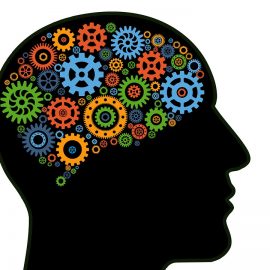

This article is an excerpt from the Shortform book guide to "Flow" by Mihaly Csikszentmihalyi. Shortform has the world's best summaries and analyses of books you should be reading.
Like this article? Sign up for a free trial here .
Can you reach the flow state through sex? What are some things you can do to promote sexual flow?
It is well-known that movements such as dance, martial arts, and yoga can promote flow, but many people don’t know that you can achieve sexual flow as well. This may be in the form of physical sex, romance, or other sensual activities such as dance and yoga.
Keep reading to see what Csikszentmihalyi has to say about sexual flow.
Finding Sexual Flow
There are a variety of enjoyable ways to use your body. Every sense we perceive—such as tasting and hearing—and movement we’re capable of making corresponds to one or more flow experiences. The ability to run, throw, swim, or sing could all yield flow experiences if you work on them in the context of a goal or social setting that offers structure and challenge. Yet many of us don’t use goal setting to actively cultivate our senses or physical ability to maximize our enjoyment of life, leaving the senses, to provide us with chaotic, disordered information.
One little-known form of flow is sexual flow. Having sex, discovering your sexuality, or who you are as a sexual being, and developing romantic relationships are some of the most universally rewarding activities. Sex in particular guides a lot of our behavior: You may dress and groom yourself to find a partner or keep an existing one, and you may work to earn money to support a relationship. The urge to have sex is rooted in human evolution, and it can be so powerful that it redirects attention from other activities. As a result, cultures have devised a variety of methods and institutions to keep this urge in check.
Generally, sexual stimulation is pleasurable. However, the same sexual act in different contexts can bring any emotion, from pleasure to disgust, or even terror. Overall, sex is like any other activity: If you don’t make it enjoyable, as opposed to just pleasurable, it can become boring. For instance, people in long-term relationships may get bored having sex with the same person. Many people find their first love the most enjoyable, and don’t feel as fulfilled in later relationships.
Sex in Different Cultures
How have different cultures made sex enjoyable? Here are two ways:
- Sex professionals. Cultures sometimes create a class of sex professionals that are skilled in entertainment such as music, dance, and acting. The Geishas in Japan are one example.
- Eroticism. Eroticism generally means developing skills to make sex more varied and enjoyable. Examples include publications such as The Joy of Sex and the Kama Sutra which were created to add challenge and variety to sex. Rituals and celebrations are another example of how societies have combined sex with religion and other culturally sanctioned practices. Examples include fertility rights and the Greeks’ Dionysian festivals.
Note: Both of the above techniques were typically limited to people who had the time and resources to enjoy them.
Sex in Relationships
And, improving sex alone won’t make a relationship last. To do so, include the following two elements:
- Romance or making the relationship more enjoyable. Acts of romance, such as sharing your feelings with a lover, add complexity and challenge to romantic relationships that make them more enjoyable. However, romance techniques weren’t developed in Europe until the late Middle Ages. Troubadours, or French minstrel singers, traveled to different castles in the Romance region of France, singing songs about romantic practices. Soon after, the practices spread through the upper classes throughout Europe. This approach can be applied by all today.
- Genuine care. It sounds simple, but one way people make relationships more interesting is by learning to express genuine care for a partner beyond sex. Taking an interest in understanding the person’s goals and dreams and supporting them can provide a lifetime’s worth of enjoyable challenges. For example, once you and your partner have a decent understanding of each other’s dreams, you may decide to raise children together or plan adventures like traveling or building a home.

———End of Preview———
Like what you just read? Read the rest of the world's best book summary and analysis of Mihaly Csikszentmihalyi's "Flow" at Shortform .
Here's what you'll find in our full Flow summary :
- Why people feel the happiest when they're in the "flow state"
- What activities and personality traits promote flow
- Why you may have a paradoxical relationship with work and leisure






